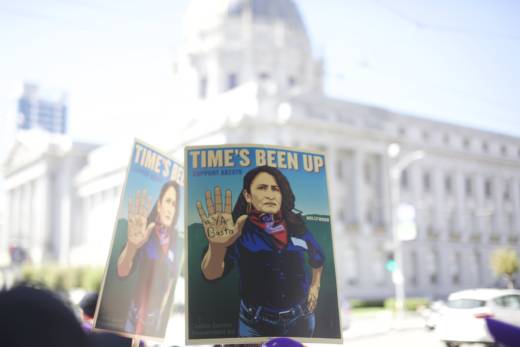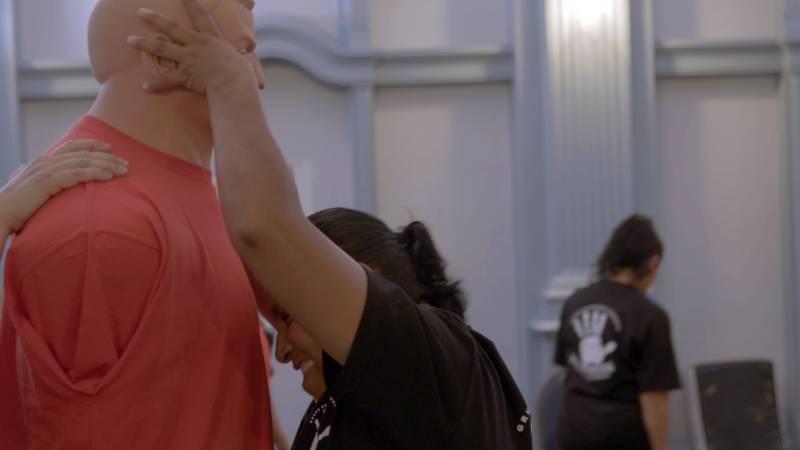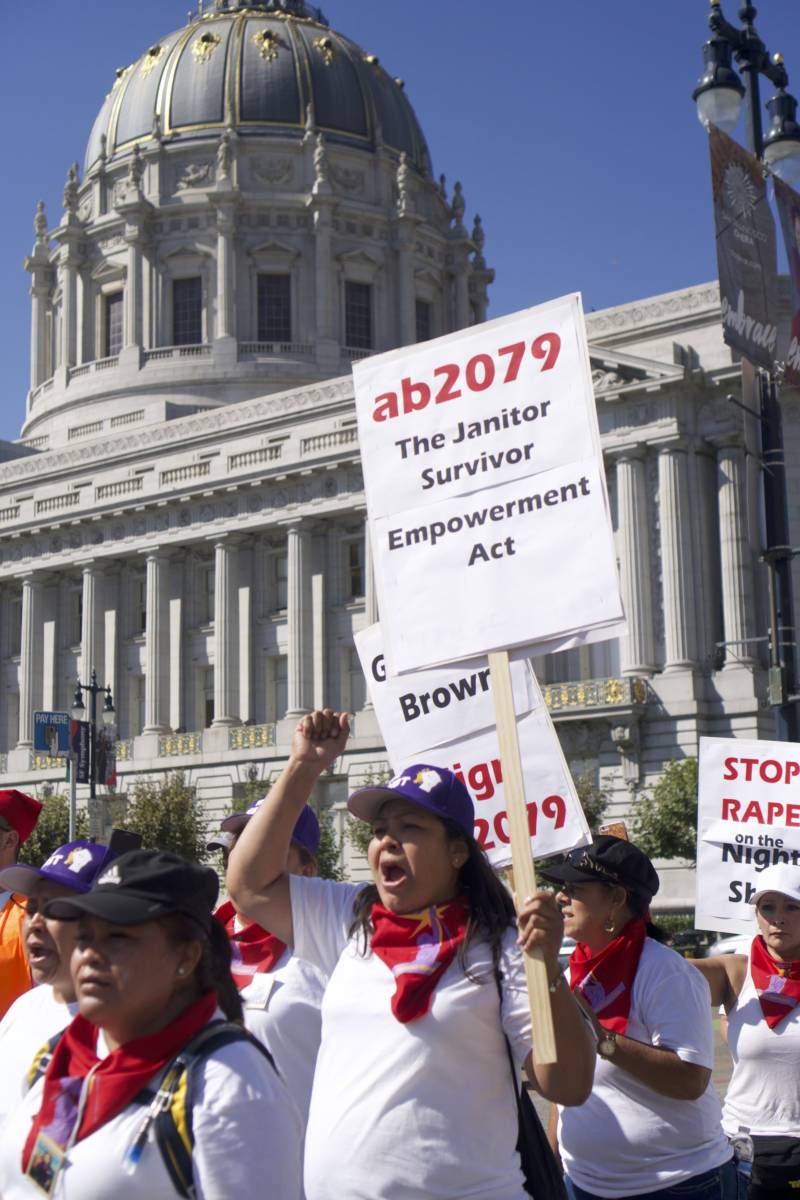It’s the last thing you might expect to see on a suburban street corner in a Northern California town like Lafayette or Martinez: a caravan of women janitors wearing bright red bandannas, carrying giant posters reading “Ya Basta!” (Enough is enough!) and chanting “Who owns my body? I do!”
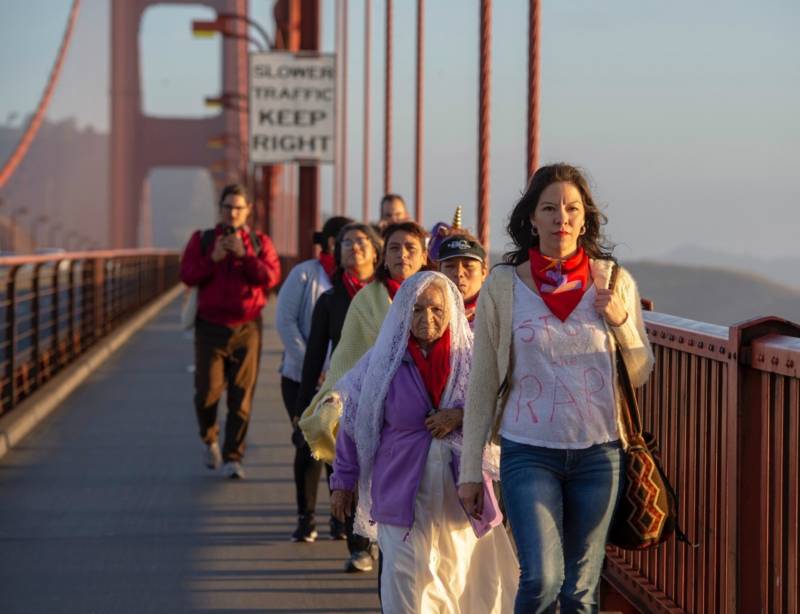
The janitors, who come from across California, began their march on Monday at the Golden Gate Bridge. They're expected to arrive in Sacramento Friday for a rally and protest on the Capitol steps. They're asking Gov. Jerry Brown to sign a bill, AB 2079, they say would go a long way to preventing sexual abuse on the night shift. Many of them have been harassed, groped, even raped in the buildings they clean, often by supervisors who take advantage of their isolated working conditions.
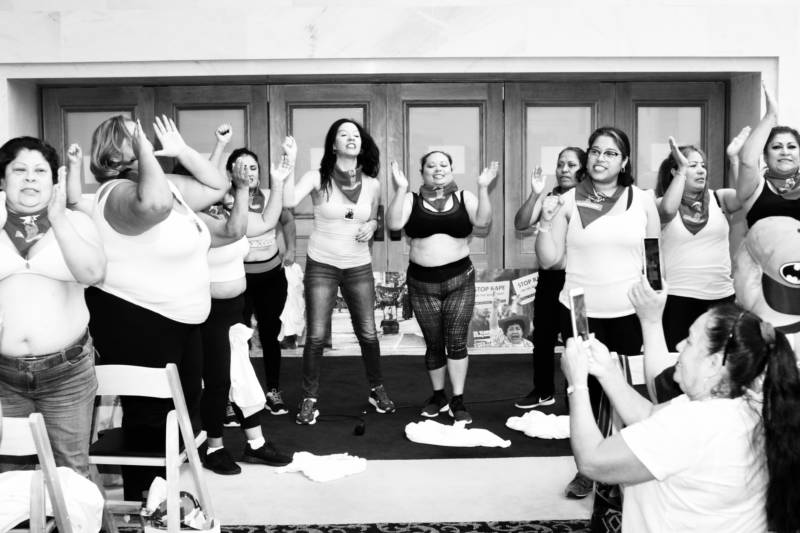
The janitors' campaign was launched after KQED, Reveal, the Investigative Reporting Program at UC Berkeley, Univision and Frontline produced a series called “Rape on the Night Shift.”
That reporting inspired a law passed last year, requiring janitorial companies to provide sexual harassment training for all employees. It was sponsored by Assemblywoman Lorena Gonzalez Fletcher of San Diego. She has now pushed through a second bill, which would require janitorial companies to allow workers to give that training to each other.
“We don’t want human resources or some lawyer to gives us the classes,” says Marta Mejia, a janitor from Los Angeles on the march. “The harassment and violence will just continue at work. It won’t change anything.”
